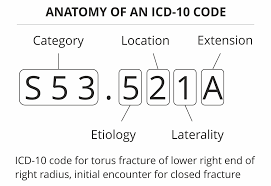International Classification of Diseases (ICD)
The International Classification of Diseases (ICD) is an international standard health tool for identification of diseases and health management. The full official name of ICD is International Statistical Classification of Diseases and Related Health Problems.
What is the importance of International Classification of Diseases (ICD)?
The International Classification of Diseases is maintained by World Health Organisation (WHO).The ICD can be considered as a directory or repository of various diseases containing health care classification system, diagnostic codes for classification of diseases and various other data like symptoms, causes of injury or disease etc. It categories various diseases by assigning a disease code of up to six characters long. Similar diseases are grouper together under a category. Presently, there are around 55,000 categories. Each category deals with similar injuries, diseases and causes of death. The categorization is based on statistical classification of heath disorders and health related issues. It concentrates on the areas of functioning related to health conditions, from both medical and social perceptions.
It is a reliable document for health professionals world over to understand causes of diseases, reasons behind sickness and identify root causes of death. This also enables health professionals to share knowledge and take necessary action to prevent diseases and save lives. The system acts as an internationally comparable health manual. Health insurers also use ICD coding for reimbursements of claims.
What are the special features of International Classification of Diseases-11 (ICD-11)?
Revision of ICD is carried out periodically and the present version in existence is ICD-10. But, WHO has released the draft of ICD 11 with updates. This was released on June 18, 2018. ICD- 11 is the result of hard work of over ten years. Health care workers contributed a lot in the preparation through collaborative meetings and submission of papers. It is a reflection of progress in medical field, science and advances in scientific researches. ICD-11 will help hospital authorities to improve safety measures by avoiding unsafe work flows that may harm health.
ICD -11 discusses health trends and statistics across the globe related to injuries, diseases and reasons of death. ICD-11 contains major improvements over ICD-10. ICD-11 is a key step forward, as it has both terminological and ontological elements and is much suited for digital era. ICD-11 which is electronic form is much more user friendly than previous editions. Coding structure is simplified in the new version. This will help users to access the details with more easiness.
The new ICD, for the first time, has a new chapter covering traditional medicine. A chapter on sexual health brings together scattered details in the previous version. Gaming disorder has been acknowledged as an addictive disorder.
When will ICD-11 become effective?
In May 2019, ICD-11 ICD-11 will be presented at the WHO Assembly which will formally evidence adoption of the documents by Member States. It will be effective from 1 January 2022. The purpose of release of version much before the effective date is to allow countries to plan for effective use of latest version, prepare translations, and familiarize the health authorities all over the country.
Some food facts for a good food habit and healthy life
Cholesterol: Everything You Ought To Know, In A Nutshell









